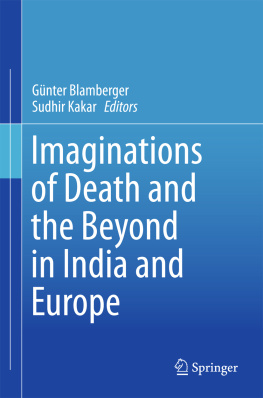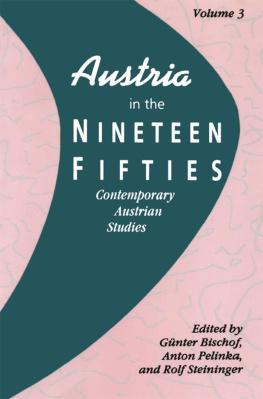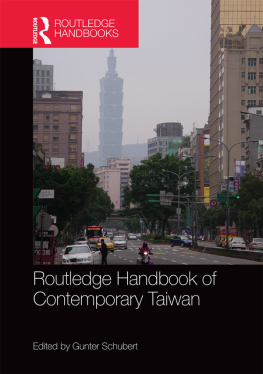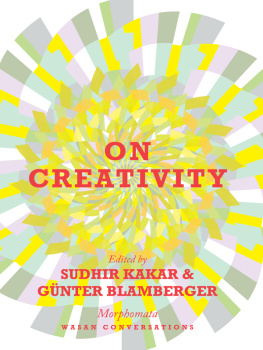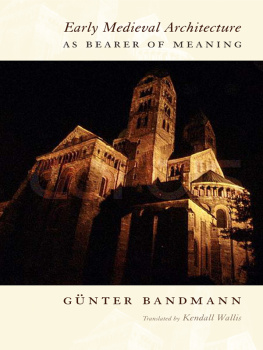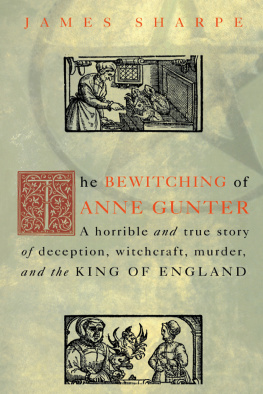1. Moksha : On the Hindu Quest for Immortality
Traditionally, Hindus, Jains, and Buddhists have viewed moksha , mukti , nirvana , as the highest aim of human life. Mahatma Gandhi, modern Indias greatest icon, elevated his search for moksha above any of his social or political goals, including Indias freedom from colonial rule. In the Introduction to his autobiography My Experiments with Truth , he writes:
I live and move and have my being in pursuit of this goal [ moksha ]. All that I do by way of speaking and writing, and all my ventures in the political field are directed to this end. I live and move and have my being in pursuit of this goal. (Gandhi , p. 14)
Moksha , most Hindus aver, is release from the cycles of birth and death that afflict all living beings. A preoccupation with moksha has been seen as one of the characteristics of Indian civilization. Thus in 300 BCE, Megasthenes, the Greek ambassador to Chandragupta Mauryas court, remarked:
Death is with them a frequent subject of discourse. They regard this life as, so to speak, the time when the child within the womb becomes mature, and death as a birth into a real and happy life for the votaries of philosophy. On this account they undergo much discipline as a preparation for death. They consider nothing that befalls men as either good or bad, to suppose otherwise being a dream-like illusion, else how could some be affected with sorrow and others with pleasure, by the very same things, and how could the same things affect the same individuals at different times with these opposite emotions? (McCrindle , p. 100)
I can imagine the following conversation between two well-educated, modern Hindus. Both are in the evening of their lives, acutely aware of the abbreviation of time, one a skeptic struggling with the failure of hope, while the other is a believer in what his religious tradition holds is the supreme goal of existence.
We cannot talk about moksha without talking of rebirth first, the skeptic begins. After all, that is what moksha is all aboutgetting off the wheel of samsara , the cycles of birth, death, rebirth, redeath ad infinitum. Moksha is no more and no less than the yearning for survival after death. It is the Hindu and Buddhist version of the wish for immortality that is as old as human awareness of death, and the impossibility of its acceptance.
I would agree with you on the last part of your assertion on the impossibility of accepting that I will die, the believer says. It is incomprehensible to fathom that my unique consciousness, with its myriad memories, thoughts and imaginings will be snuffed out like a candle flame, leaving not even a palpable darkness behind. It is unendurable to contemplate that the many ties of love and affection, to a partner, children, relatives, friends, which have sustained me all through my life, will be irrevocably snapped.
Fortunately, our awareness of our own death is at the level of thought, not emotional conviction. We are capable of thinking of our death but incapable of imagining it. In the Vana Parva of the epic Mahabharata (c. ninth century BCEfourth century CE), there is the story of a series of questions the god of justice and morality, Dharma, disguised as a yaksha , a nature spirit, asks the eldest of the five Pandava brothers, Yudhishthira, who has come to an enchanted lake in which his four brothers have found a watery grave. Impelled by a raging thirst, the brothers did not heed the yaksha s warning not to drink the water before answering his questions. Yudhishthira is more patient and agrees to the yaksha s stipulation. His answer to one of the yaksha s last questions, on what is the most amazing thing in the world, an answer that remains true for all times and cultures is that day after day, countless creatures are going to the abode of Yama [the god of death], yet those that remain behind believe themselves to be immortal. What can be more amazing than this? ( Mahabharata , vol. 1, loc. 24516).
I am glad that we can begin with an agreement, replies the skeptic. As far as the unimaginability of death is concerned, Yudhishthira has company in other religious traditions. The Sufi saint Uwais was once asked,
What has Grace brought you?
When I wake up in the morning I feel like a man who is not sure he will live till evening, Uwais replied.
But doesnt everyone know this?
They certainly do, Uwais said. But not all of them feel it. (Cited in Osho , p. 22)
And it is not only religious traditions. There is little difference between Yudhishthiras north India of 600 BCE, the time of the Mahabharata , and central Europe of early twentieth century where the founder of psychoanalysis, Sigmund Freud, wrote,
It is indeed impossible to imagine our own death: and whenever we attempt to do so we can perceive that we are in fact still present as spectators. Hence the psycho-analytic school could venture on the assertion that at bottom no one believes in his own death, or, to put the same thing in another way, that in his unconscious, every one of us is convinced of his own immortality. (Freud , p. 289)
It is indeed poignant to observe how a person, as he gets older, becomes more and more concerned with how his loved ones will recollect him in their memories after he is dead. As if he will be hovering around somewhere in a disembodied state, registering their thoughts and feelings. The belief that psychic life persists after death is the life-blood of all religions, not just the ones that have their origin in India. Walk through a Christian cemetery and you will see the letters RIP, or the full phrase Rest in Peace, inscribed on the gravestones. The inscription indicates a belief that the dead person can still feel after deathrest (=be dead)in a peaceful state of mind (Martindale , p. 269).
Since you like to quote Freud, the patron saint of modern skeptics, I am sure you are aware that Freud himself is not impervious to the siren song of immortality, says the believer. Three years before his own death at the age of 80 from cancer of the mouth, he writes to Marie Bonaparte, a friend and disciple, of his recognition of a limited immortality.
My dear Marie
I can answer you without delay, for I have little to do. Two days ago Moses II was finished and laid aside, and the best way to forget ones minor ailments is by exchanging thoughts with friends. To the writer immortality evidently means being loved by any number of anonymous people. Well, I know I wont mourn your death, for you will survive me by years, and over mine I hope you will quickly console yourself and let me live in your friendly memorythe only form of limited immortality I recognize.
The moment a man questions the meaning and value of life, he is sick, since objectively neither has any existence; by asking this question one is merely admitting to a store of unsatisfied libido to which something else must have happened, a kind of fermentation leading to sadness and depression. I am afraid these explanations of mine are not very wonderful. I have an advertisement floating about in my head which I consider the boldest and most successful piece of American publicity: Why live, if you can be buried for ten dollars. (Freud , pp. 437438)
Quite apart from Freuds contention that thinking about the meaning of life is a sign of unsatisfied sexuality, which will be dismissed by many, philosophers and lay persons alike, you would agree that Freud, too, in his inimitable ironic fashion, is showing a concern for his own immortality.

